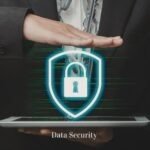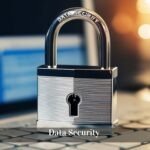Table of Contents
In the digital world we live in today, protecting your privacy has never been more important. With the increasing prevalence of cyber threats, from data breaches to identity theft, understanding how to protect your personal information online is essential. While it might seem overwhelming, adopting a few simple cybersecurity habits can make a significant difference. In this article, we’ll explore six practical habits that can help you protect your privacy and keep your digital life secure.
Understanding the Importance of Cybersecurity
Before diving into the habits, it’s crucial to understand what cybersecurity is and why it matters. Cybersecurity refers to the practices, technologies, and processes designed to protect your digital information from unauthorized access, theft, or damage. Whether it’s your data, financial information, or sensitive work documents, poor cybersecurity practices can lead to devastating consequences.
Imagine someone breaking into your home and rifling through your personal belongings—that’s essentially what happens when cybercriminals gain access to your online accounts. The potential fallout ranges from financial loss to reputational damage, making cybersecurity a must for everyone.
Habit 1: Use Strong, Unique Passwords
Your passwords are the first layer of protection against unauthorized access to your accounts. Unfortunately, many people still use weak, easily guessable passwords like “123456” or “password.” Such passwords are a goldmine for hackers, who can use automated tools to crack them in seconds.
To create strong, memorable passwords, consider using a mix of upper- and lowercase letters, numbers, and special characters. Avoid using personal information like your name or birthdate, which can be easily guessed. For instance, instead of using “John1985,” opt for something like “J0hn$85s!cur3.”
If remembering complex passwords seems daunting, you’re not alone. Password managers are a fantastic tool that can generate and store strong, unique passwords for all your accounts. With a password manager, you only need to remember one master password and the tool handles the rest.
The Role of Two-Factor Authentication (2FA)
Even the most robust password can be compromised, which is where Two-Factor Authentication (2FA) comes into play. 2FA adds an extra layer of security by requiring not just your password but also a second piece of information, such as a code sent to your phone, to access your account.
Imagine 2FA as having a second lock on your front door. Even if someone has your key (password), they still need the combination (2FA code) to get in. Many popular platforms like Google, Facebook, and banking apps offer 2FA, and it’s highly recommended that it be enabled wherever possible.
Habit 2: Regularly Update Your Software
Software updates are more than just annoying pop-ups—they’re critical for maintaining your security. Developers regularly release updates to fix security vulnerabilities, add new features, and improve the overall performance of their software. Neglecting these updates can make your system vulnerable to cyber threats.
Outdated software is like leaving your windows unlocked—it provides an easy entry point for hackers. By keeping your operating system, applications, and devices up to date, you close these potential entry points and protect your data from being compromised.
Understanding Patch Management
Patch management is the process of updating software with the latest patches, which fix specific vulnerabilities. Organizations often have dedicated teams to ensure timely patching across all systems. However, for individual users, setting up automatic updates is an effective way to stay secure without the hassle of manually checking for updates.
Habit 3: Be Wary of Phishing Attacks
Phishing is among the most frequent and dangerous cyber threats. It involves tricking individuals into providing sensitive information, such as login credentials or financial details, by posing as a trustworthy entity in an email, text message, or website.
Phishing emails often look legitimate but contain subtle red flags like spelling errors, suspicious links, or urgent language demanding immediate action. Always be cautious when receiving unsolicited communications, especially if they ask for personal information. If something feels off, trust your instincts and verify the source before clicking on any links or downloading attachments.
The Importance of Email Security
Your email account is often the gateway to other accounts, making it a prime target for hackers. To secure your email, use a strong password, enable 2FA, and be vigilant about phishing attempts. Additionally, consider using email filters to block spam and malicious emails before they reach your inbox.
Habit 4: Use a Virtual Private Network (VPN)
A Virtual Private Network (VPN) is a powerful tool that helps protect your privacy online by encrypting your internet connection and masking your IP address. This means that even if someone intercepts your data, they won’t be able to read it.
VPNs are beneficial when using public Wi-Fi, where your data is more vulnerable to interception. However, they also provide an extra layer of security at home by preventing your internet service provider (ISP) and other third parties from tracking your online activities. When choosing a VPN, look for one that offers strong encryption, a no-logs policy, and reliable performance.
Public Wi-Fi and VPNs
Public Wi-Fi networks, like those in coffee shops or airports, are convenient but notoriously insecure. Without a VPN, it’s like broadcasting your online activities for anyone to see. A VPN acts as a shield, protecting your data from prying eyes. When using public Wi-Fi, always connect through a VPN to ensure your privacy and security.
Habit 5: Regularly Back Up Your Data
Backing up your data is one of the simplest yet most effective cybersecurity habits. Regular backups ensure that even if your data is compromised, you won’t lose it permanently. Whether it’s due to a cyberattack, hardware failure, or accidental deletion, having a backup can save you many headaches.
Various methods exist for backing up data, including cloud storage services, external hard drives, and network-attached storage (NAS). It’s a good idea to use a combination of these methods to ensure your data is safe and accessible from multiple locations.
The Role of Encryption in Data Backups
Encryption involves turning your data into a code to keep it secure from unauthorized access. When backing up sensitive information, it’s crucial to use encryption to protect it from being accessed by anyone who shouldn’t see it. Many cloud storage services offer encryption, but you can also use standalone encryption tools to secure your data before backing it up.
Habit 6: Be Mindful of Your Online Footprint
Your online footprint is the trail of data you leave behind when using the internet, including everything from social media posts to online purchases. This information can be used to track your behaviour, target you with ads, or even steal your identity.
To minimize your online footprint, be selective about the information you share online. Regularly review your privacy settings on social media and other platforms, and consider deleting old accounts that you no longer use. Additionally, be cautious about accepting cookies on websites, as they can track your browsing habits.
The Impact of Social Media on Privacy
Social media platforms are notorious for collecting and using your data for various purposes, often without your explicit consent. While it’s challenging to be utterly private on social media, you can take steps to protect your information. Avoid sharing sensitive details like your address or phone number, and use privacy settings to control who can see your posts.
Conclusion
In a world where cyber threats are increasingly common, adopting positive cybersecurity habits is crucial to protect your privacy. By using strong passwords, enabling 2FA, keeping your software up to date, being cautious of phishing, using a VPN, regularly backing up your data, and managing your online footprint, you can greatly lower your chances of becoming a victim of cybercrime. Start implementing these habits today and enjoy the peace of mind that comes with knowing your digital life is secure.










